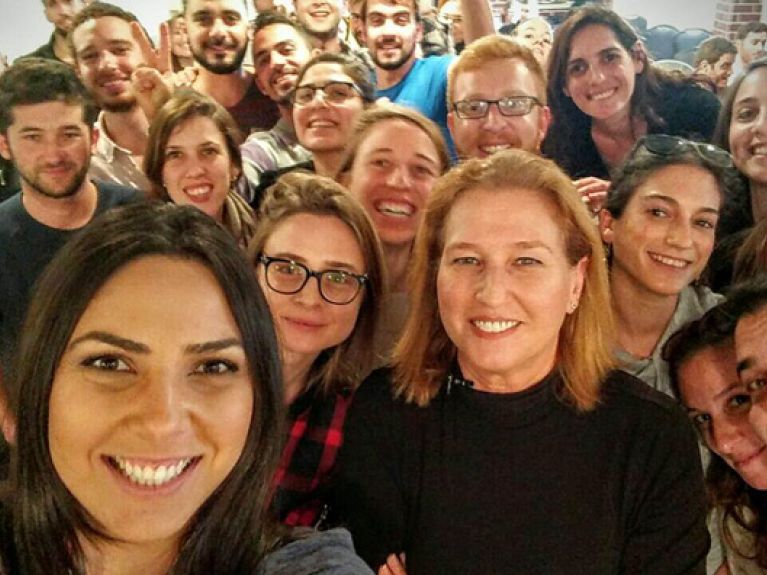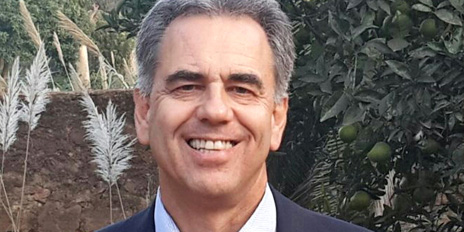“Conveying liberal values”
The Friedrich Naumann Foundation for Freedom works out of East Jerusalem with a Palestinian-Israeli team.

The Friedrich Naumann Foundation for Freedom opened its Israeli office in 1983. It is affiliated with the Free Democratic Party (FDP). Eleven years later, following the Oslo Agreement, the Foundation added an office in the Palestinian Territories. Staffed by a mixed team and now merged into one office located on the historical borderline between West and East Jerusalem, the Friedrich Naumann Foundation for Freedom is today the only German party-affiliated foundation working beyond the Green Line in both Israel and the Palestinian Territories.
The Foundation regarded its natural political partner in Israel as the Kadima Party, founded in 2005 by then Prime Minister Ariel Scharon. Kadima saw itself as a liberal force in the middle of the party spectrum, but was dissolved in 2015 after internal conflicts. Its indirect successor party is Hatnua, led by former Foreign Minister and Kadima chairman Zipi Livni. Now, however, Hatnua, together with the Labour Party; belongs to the “Zionist camp”.
For the Foundation, whose chief foreign policy strategy is to promote the political ideas and goals of liberalism, these events opened a gap in the Israeli political landscape. After the “collapse of organized Liberalism in Israel”, it therefore initiated the “Liberal Project”, which has as its goal the rallying of liberal forces in politics, business and society and the revitalization of the liberal movement in Israel.
4 questions for Ulrich Wacker, supervisor of the Jerusalem office

What are the key themes of the Foundation’s work in 2017?
We convey liberal values so as to consolidate democratic thinking and the rule of law. We want to make a contribution to improving the relationship between the Jewish majority and the Arab minority and exercise a stabilizing influence within the framework of the Israeli-Palestinian and Israeli-Turkish dialogue platforms. In addition, we will be analysing the social consequences of historical events that will have their anniversaries this year: the 50th commemoration of the Six Day War, the 70th of the UN Partition Plan for Palestine, and the 120th of the Zionist Conference.
How does your work differ from that of the other institutions?
In organizational terms, our project office in East Jerusalem takes care of Foundation work on both sides of the Green Line. This has been working since 1994. In terms of content, committed as we are to the liberal value of individual freedom, we pay special attention to the relationship between the state and religion in Israel: civil marriage, religion in the educational system and the military, the role of the rabbinate and the character of the Jewish state are all subjects in the focus of our work with our partners.
Who would you like to reach with your work? And how well have you succeeded in this?
We would like to reach people in Israel’s society who share our liberal concerns: the strengthening of democratic and lawful state institutions, a peaceful settlement between the Israel and the Palestinians in a two-state solution, a market-oriented economic regulatory framework and an open society. Between Germany and Israel we want to foster a stronger exchange of start-up entrepreneurs and stimulate the shaping of digitalization in our society.
What do you see as the greatest challenge for German-Israeli relations?
It hasn’t become any easier to explain Israel’s policies in Germany. But we must not allow ourselves to become alienated. That’s why multi-faceted dialogue is so important, underlying which is the unique depth of Germany’s responsibility for the Shoah. Our interwoven history has shaped the collective self-understanding and political action of our two countries, through common and through contrary lessons. There continue to be misunderstandings here, and these need to be clarified in order to better understand Israeli policy.
© www.deutschland.de

